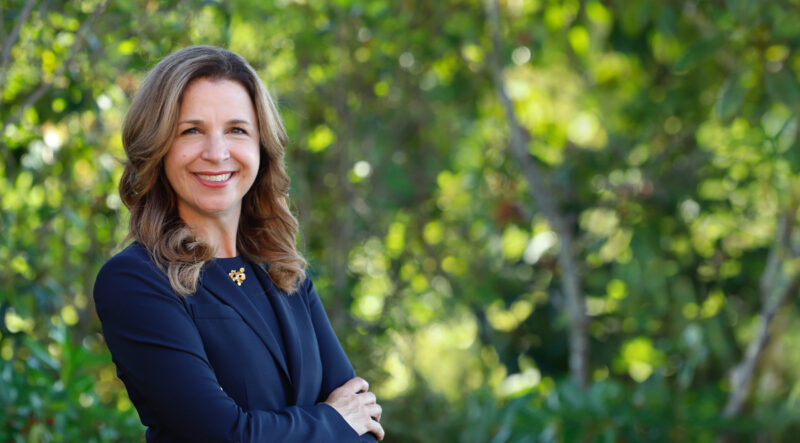Salmon linings playbook of a Washington State politician
Ignoring science and dismissing judicial precedents, Hilary Franz plans to demonize salmon and fish farmers in Washington State as she launches her campaign to get re-elected.
By Fabian Dawson
SeaWestNews
On Friday at her home-base of Bainbridge Island, Hilary Franz, Washington State’s Commissioner of Public Lands will announce what the future will look like for salmon farmers in the Evergreen State south of BC’s border.
It will have very little to do with science, judicial findings, increasing food security or fighting the impacts of climate change in the Pacific Northwest.
Instead, the announcement will be laced with apocalyptic fear-mongering aimed at getting votes from the anti-fish farming lobby group – something we in British Columbia are familiar with.
Franz, whose widely reported ambition is to get to the governor’s mansion has already begun chumming the gubernatorial waters with her radical friends.
This week, Franz who heads Washington’s Department of Natural Resources (DNR), aggressively announced she has terminated Cooke Aquaculture’s last two net-pen aquaculture leases in Puget Sound.
The current leases will formally expire 14 December, 2022, according to Franz, putting an end to the Canadian company’s steelhead farming operations in Washington State.
“Today, we are freeing Puget Sound of enclosed cages…. Today, we are returning our waters to wild fish and natural habitat,” she said in a media statement, reminiscent of a fact-free political manifesto.
“The science does not support the statements made by Commissioner Franz that the removal of these fish farms will save wild fish and natural habitat,” said Joel Richardson, Vice President of Public Relations for Cooke Aquaculture.
Commissioner Franz’s decision, will also force Cooke to kill 332,000 juvenile steelhead that were planned to be stocked at two farms in 2023.
“This is a tragic outcome for fish that should have been healthy, sustainable, food for our communities,” said Richardson, adding the company is currently focussed “on our employees in Washington State, who are best-in-class multi-generational fish farmers whose livelihood has been put in jeopardy by Commissioner Franz.”
Other than spouting the rhetoric of anti-salmon farming detractors, Franz does not make any mention of a series of rulings and peer-reviewed scientific studies that show Cooke’s operations in Washington State has little to no adverse environmental impact to wild stocks in the area.
For instance, the Washington Department of Fish and Wildlife (WDFW) has taken direct aim with Franz’s allies like the Wild Fish Conservancy (WFC), which the government agency says misuses scientific literature to exaggerate risks to native salmon.
But that doesn’t seem to bother Franz, who will be standing alongside WFC activists this Friday at the Fort Ward State Park on Bainbridge Island to underscore that the only science that matters, when it comes to salmon farming, is that which gets her votes.
Here are some of the other rulings and studies that flies in the face of Franz’s assertions that fish farming is bad for Washington State.
In a January 2020 landmark 9-0 ruling, the Washington State Supreme Court found the claims about disease and sea lice impacting wild stocks, that have been falsely and widely propagated by anti-fish farm activists in the Pacific Northwest, to be without merit.
Rejecting the dubious studies trotted out by the activists, the court upheld a permit granted to Cooke Aquaculture Pacific by the Washington Department of Fish and Wildlife (“WDFW”) for the farming of Pacific Steelhead trout. The permit to Cooke, was challenged by an eco-coalition opposed to fish farming, which had claimed, without proof, that the ocean-based operations would cause significant adverse impacts on the environment and wild stocks.
Earlier, Washington’s Department of Ecology approved the permit modification application from Cooke making it possible for the company to raise female, triploid steelhead (Oncorhynchus mykiss) at four sites for a minimum of five years.
In addition to the Department of Ecology’s review of water quality permits, the Washington Department of Fish and Wildlife (WDFW) has spent one year analyzing potential impacts to Puget Sound, during which experts analyzed more than 150 studies on marine aquaculture.
In the end, WDFW concluded that farming steelhead posed no significant risk to the marine environment.
There are many reasons contributing to wild salmon population decline including hydropower dams, growing seal populations as predators, habitat loss due to development, continued commercial fishing in migratory routes, municipal waste treatment plants releasing untreated pollutants and contaminants which affect juvenile salmon and more.
Franz’s decision is also perplexing as the world gathers in Egypt for the UN Climate Conference (COP 27) where aquaculture is being touted as a sustainable food production system which will give us more affordable protein for less environmental impact.
It also comes in the wake of America’s newly unveiled 5-Year Strategic Plan for Aquaculture, which illustrates the urgent need to increase seafood production in US waters.
Fish farmers on both sides of the border have consistently been working with world-renowned scientists from academia, government, and the private sector to develop rigorous standards and implement best practices for fish health and environmental protection.
On the other hand, politicians, especially those who see a pathway to power on the backs of fish farmers, do not want to deal with the science, because fear mongering gets votes.
On November 30th at the Seattle Convention Center, Franz will be kicking off her re-election campaign with a $150-lunch event that will serve up more anti-fish farming hyperbole.
She may as well unfurl banners at the event that say – “Do not come to Washington, do not invest here.”
Meanwhile, three leading US trade groups–the Northwest Aquaculture Alliance (NWAA), National Fisheries Institute (NFI), and the National Aquaculture Association (NAA) are calling for an independent review of Franz’s decision.
“This was not a decision based on science,” said NWAA President and CEO of tribally owned Jamestown Seafood, Jim Parsons.
“If that were the case, we would be seeing a very different decision.”
(Facebook image of Hilary Franz)

